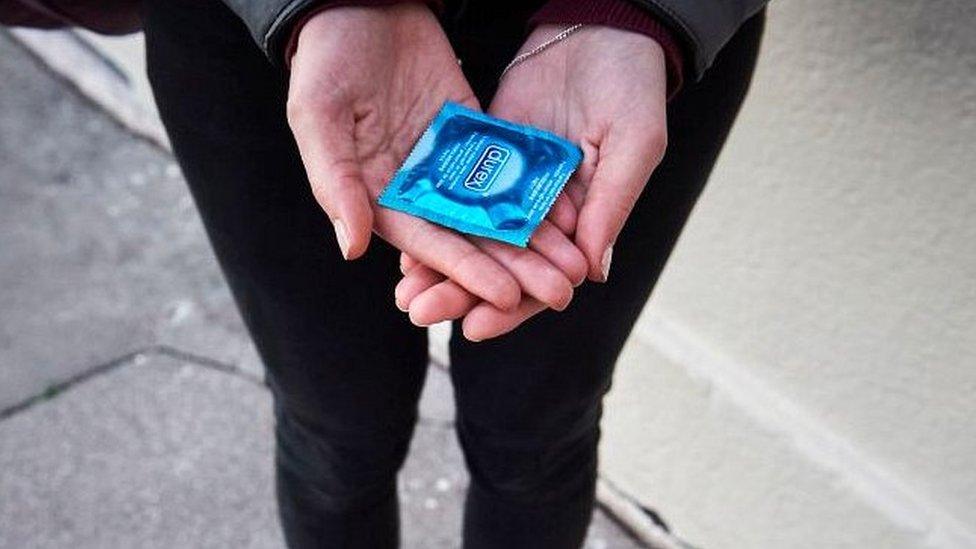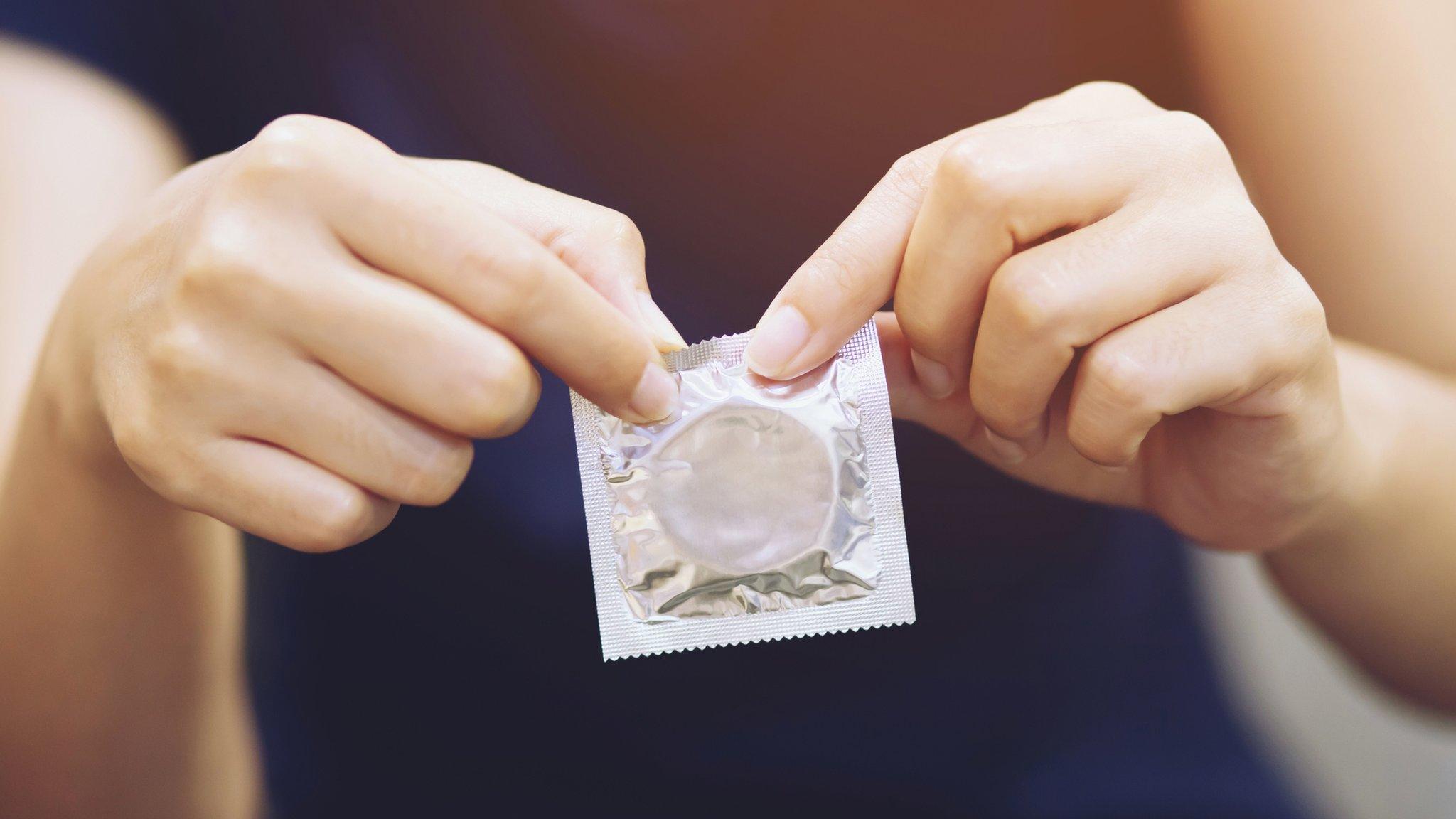People urged to take gonorrhoea tests as cases rise
- Published

Gonorrhoea cases in England have resurged since the easing of Covid restrictions, health officials are warning people who are sexually active.
Condoms can stop the spread of this and other sexually transmitted infections.
Provisional data shows diagnoses in the first nine months of 2022 hit 56,327 - 21% higher than for the same 2019 period.
People should practise safe sex and get tested regularly if having sex with new or casual partners, experts say.
Typical symptoms of gonorrhoea include a thick green or yellow discharge from the vagina or penis.
But some people will have no symptoms, especially for infections in the throat, vagina or rectum.
Experts say people should practise safe sex and get tested regularly if they are having sex with new or casual partners.
Testing is simple, free and discreet, they advise.

What is gonorrhoea?
The disease is caused by the bacterium Neisseria gonorrhoeae.
The infection is spread by unprotected vaginal, oral and anal sex.
Symptoms can include a thick green or yellow discharge from sexual organs, pain when urinating and bleeding between periods.
However, vaginal and rectal infections often have no symptoms.
An untreated infection can lead to infertility, pelvic inflammatory disease and can be passed on to a child during pregnancy.

Dr Claire Dewsnap, from the British Association for Sexual Health and HIV, said: "The rise in gonorrhoea cases provides an important reminder of the importance of testing for sexually transmitted infections (STIs) and wearing a condom every time you have sex.
"By getting tested at least once a year, regardless of whether you're showing symptoms, you can help minimise the risk of catching or passing on STIs when having sex.
"Delaying access to the right care and treatment also risks developing longer term problems which can be more difficult to address. If you are concerned about STI transmission, sexual health clinics are on hand to help."
How to get tested
There are several different places you can go to be tested for gonorrhoea:
a sexual health clinic (sometimes also called a GUM clinic)
your GP surgery
a contraceptive and young people's clinic
a private clinic
It is possible to buy a gonorrhoea test from a pharmacy to do yourself at home. However, these tests vary in accuracy, so it is recommended that you go to your local sexual health service.
All tests are free through the NHS, but you will have to pay if you go to a private clinic.
Dr Katy Sinka, head of the STI section at UK Health Security Agency, reminded people: "You can get free condoms at your local sexual health clinic and if you're under 25, you can also get them online., external"
Scotland has seen a similar rise in gonorrhoea cases.
Experts are also concerned that gonorrhoea has been developing resistance to certain antibiotic treatments, with some cases of so-called "super-gonorrhoea" being seen in recent years around the world. These remain rare at the moment.
- Published14 March 2023

- Published9 January 2019
